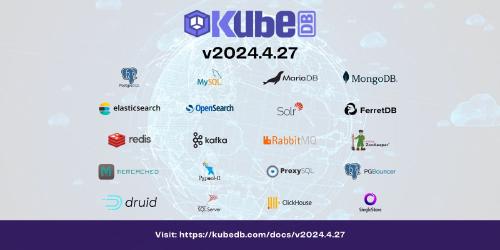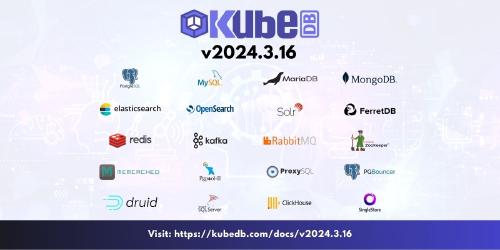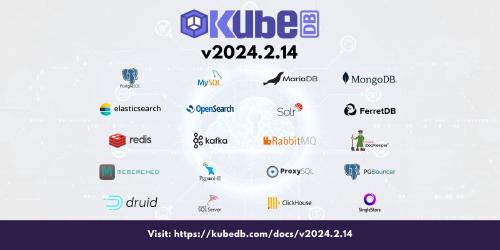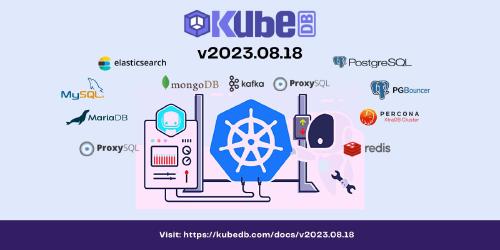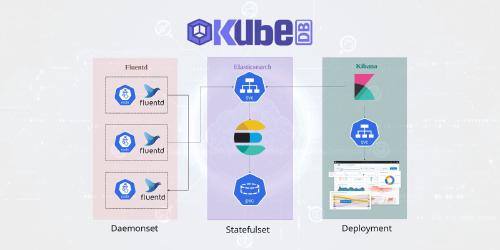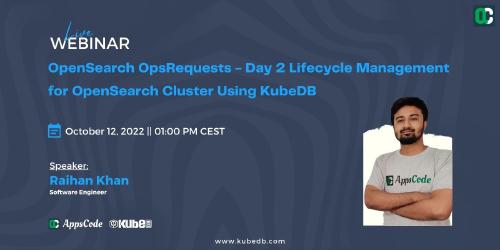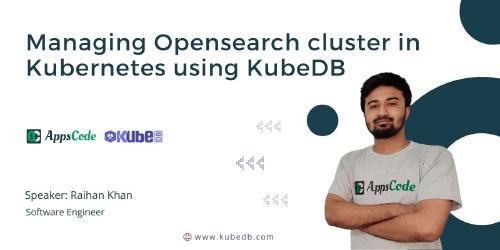KubeDB
Run Production-Grade Databases on Kubernetes
arrow_forwardKubeStash
Backup and Recovery Solution for Kubernetes
arrow_forwardStash
Backup and Recovery Solution for Kubernetes
arrow_forwardKubeVault
Run Production-Grade Vault on Kubernetes
arrow_forwardVoyager
Secure Ingress Controller for Kubernetes
arrow_forwardConfigSyncer
Kubernetes Configuration Syncer
arrow_forwardKubeDB simplifies Provisioning, Upgrading, Scaling, Volume Expansion, Monitor, Backup, Restore for various Databases in Kubernetes on any Public & Private Cloud
- task_altLower administrative burden
- task_altNative Kubernetes Support
- task_altPerformance
- task_altAvailability and durability
- task_altManageability
- task_altCost-effectiveness
- task_altSecurity

A complete Kubernetes native disaster recovery solution for backup and restore your volumes and databases in Kubernetes on any public and private clouds.
- task_altDeclarative API
- task_altBackup Kubernetes Volumes
- task_altBackup Database
- task_altMultiple Storage Support
- task_altDeduplication
- task_altData Encryption
- task_altVolume Snapshot
- task_altPolicy Based Backup

A complete Kubernetes native disaster recovery solution for backup and restore your volumes and databases in Kubernetes on any public and private clouds.
- task_altDeclarative API
- task_altBackup Kubernetes Volumes
- task_altBackup Database
- task_altMultiple Storage Support
- task_altDeduplication
- task_altData Encryption
- task_altVolume Snapshot
- task_altPolicy Based Backup

KubeVault is a Git-Ops ready, production-grade solution for deploying and configuring Hashicorp's Vault on Kubernetes.
- task_altVault Kubernetes Deployment
- task_altAuto Initialization & Unsealing
- task_altVault Backup & Restore
- task_altConsume KubeVault Secrets with CSI
- task_altManage DB Users Privileges
- task_altStorage Backend
- task_altAuthentication Method
- task_altDatabase Secret Engine

Secure Ingress Controller for Kubernetes
- task_altHTTP & TCP
- task_altSSL
- task_altPlatform support
- task_altHAProxy
- task_altPrometheus
- task_altLet's Encrypt

Kubernetes Configuration Syncer
- task_altConfiguration Syncer
RECENT NEWS/BLOG
30 AprAnnouncing KubeDB v2024.4.27
byRaihan KhanWe are pleased to announce the release of KubeDB v2024.4.27 . This release includes features like (1) TLS support for SingleStore & PgPool, (2) Monitoring & Alerting Support for Druid & Solr using Prometheus and Grafana, (3) PDB support for Kafka, Kafka Connect Cluster and RabbitMQ, (4) initial release of Microsoft SQL Server support, (5) Backup and Restore support for ZooKeeper using KubeStash, (6) OpsRequest and Autoscaler support for RabbitMQ, (7) new version support for MongoDB, (8) health checker improvement for Memcached; and (9) Grafana dashboard enhancement for Postgres.
28 MarSee More arrow_forwardAnnouncing KubeDB v2024.3.16
byRaihan KhanWe are pleased to announce the release of KubeDB v2024.3.16 . This release is primarily focused on adding monitoring support for Kafka, RabbitMQ, Zookeeper, SingleStore and Pgpool. Besides monitoring support, some additional database versions and a few bug fixes are also coming out in this release. This release is bringing a major change which is replacing database StatefulSet workloads with PetSet. Initially, RabbitMQ, Zookeeper, SingleStore, Druid, FerretDB and Pgpool are receiving this update.
- Webinar New





